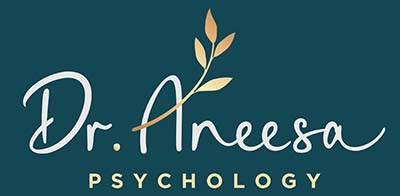The Reassurance Trap: The Tricks OCD Plays on Us
You're out driving to work when you drive over a pothole. You feel the bump underneath the car as you drive over it. A moment later, as you continue driving, doubt creeps in and you have the horrifying thought of "what if I ran over someone?". You try to reason with this doubt for a few moments as you continue driving, but the worry grows louder, causing you to wonder if you have run over someone and missed it. You begin to imagine someone lying in the road, and have visions of the police knocking on your door to arrest you hours later. You are now feeling panicky, heart is pounding, palms are sweaty, and you are convinced that you have run someone over and are a horrible person.
You turn the car around and drive back to the scene, getting out of the car to carefully examine the road. Problem solved right? No! Because the more closely you examine the scene, the more you start to doubt your own perceptions. Highly anxious and panicked, you take a video of the road and send it on whats app to your spouse, who quickly reassures you that there is in fact only a pothole there. You breathe a sigh of relief, feeling calmer instantly, and get back in your car to continue driving to work.
If you have ever struggled with trusting your own judgement and felt plagued with doubt and anxiety in these types of situations, read on!
Why do we seek Reassurance when we have OCD?
It’s simple: it feels good. That moment when someone confirms your worst fears aren’t real can bring temporary relief. But this relief is short-lived. It’s like putting a Band-Aid on a gaping wound; it might cover it up for a while, but it doesn’t heal it. The more you ask a loved one for reassurance, the more you doubt yourself and your own perceptions, allowing the OCD to grow stronger in your mind. In that moment of asking someone persistently for reassurance, you are sending the message to your brain that their judgement can be trusted but yours cannot. Sometimes, people can even develop false memories and convince themselves they have done what they fear, despite all the evidence to the contrary.
The Vicious Cycle of Reassurance: Thoughts are Dangerous
The more you seek reassurance, the more you reinforce the idea that your thoughts are dangerous and that these thoughts are a sign that you are a bad person, crazy, or dangerous. It's like telling your brain, "See, I need you to confirm this because I can't handle it on my own." This strengthens the OCD, making it harder to detach from what are usually random thoughts that everyone gets on a daily basis. In the long run, relying on others to provide you with reassurance of what you have already perceived is just going to maintain OCD thinking longer, and the next time you doubt yourself, those doubts will be even stronger and harder to ignore. Over time, you may find that you need to ask your loved one more and more for reassurance, needing them to repeat things a certain number of times until it feels just right.
The Impact of OCD on Relationships
Reassurance seeking can put a strain on relationships. Constantly asking loved ones for reassurance can be exhausting for them. It's important to remember that they can’t protect us from our own thoughts, and that they can't assume the responsibility of relieving your anxiety and doubts. Over time, reassurance seeking from others can become time consuming as more and more is often needed over time, and can wear on the person's patience.
Standing up to OCD: Finding your Voice
Breaking free from the reassurance trap is tough, but it's possible. It involves facing your fears and learning to tolerate uncertainty. Exposure and Response Prevention (ERP) is a gold standard NICE recommended treatment that can help. It involves gradually exposing yourself to anxiety-provoking situations without seeking reassurance, and learning that anxiety will go away even if we do not respond to intrusive thoughts and the doubt that OCD brings.
Remember, you're not alone. Many people with OCD struggle with reassurance seeking. By understanding the cycle and seeking professional help, you can take steps to detach from intrusive thoughts, get out of your head, and be fully present in the moment.
Have you struggled with reassurance seeking? What strategies have helped you? Share your experiences in the comments below.
Disclaimer: This blog post is intended for informational purposes only and does not constitute professional medical advice. If you are struggling with OCD, please seek help from a qualified mental health professional.



















